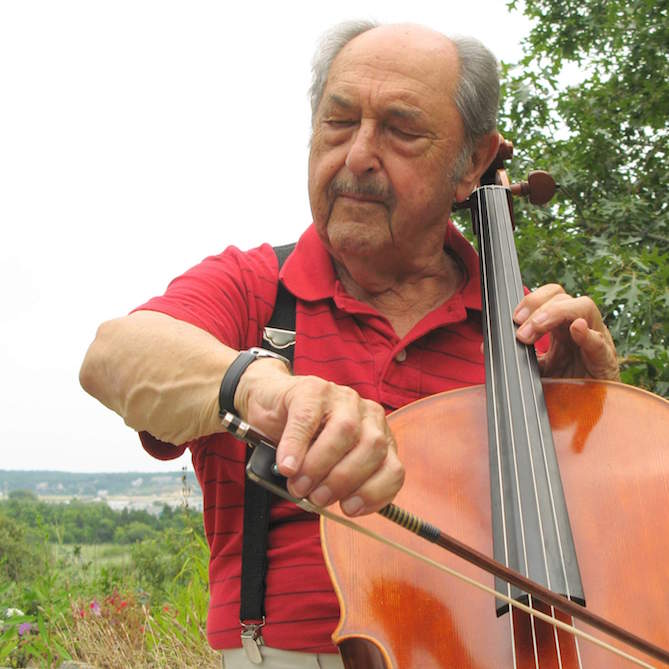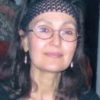
Reflections on Bernard Greenhouse and the Importance of the Back
Selma Gokcen
“We are learning to do consciously what Nature intended.”
—F.M. Alexander
Spending a week remembering Bernard Greenhouse on CelloBello brought back memories of many hours of lively conversations and shared experiences. Bernie had naturally what we call ‘a back’ in the Alexander Technique, and there is no faking or pretending to have a back…you either do or you don’t, and the evidence of it is felt in the power of presence. The back mediates all our responses—a strong and expansive back gives one the ability to speak and act from a place of natural authority. Bernie’s quiet but strong presence when playing, teaching or just conversing emanated from that central core that Casals spoke about, and which no doubt magnetized Bernie from far away and moved him across an ocean in search of the master. Like recognized like.
One day I said to Bernie, ” You know, you have naturally what we all work to develop in our practice of the Alexander Technique—over many years of study.” He asked me for a lesson, and I obliged. I started off by giving him what we call a ‘table turn,’ after lunch. Having had a substantial meal, he soon was asleep on his back, but later said that he recognised the benefit of it. I am not so sure…I think he was being kind! But he did show me his way of using his back at the cello, with the swing of the bow arm in opposition to the back, exactly what I teach in my Alexander lessons. I break it down into smaller steps so that students can acquire it eventually as a natural part of their technique.
Being ‘in the back’ as we say, not pushing forward or collapsing, but allowing the back to expand and lengthen, means as well that our perception of time falls into place. We are neither pushing or rushing time nor dragging, because the back maintains a firmness which is effortless and produces a sense of ease, allowing for expression which is unhurried.
The Chinese have a wonderful saying: tension is who you think you should be, relaxation is who you are. Bernie was just who he was, and perhaps that’s why we all felt happy around him. Finding your back and living ‘in your back’ is being who you are.
